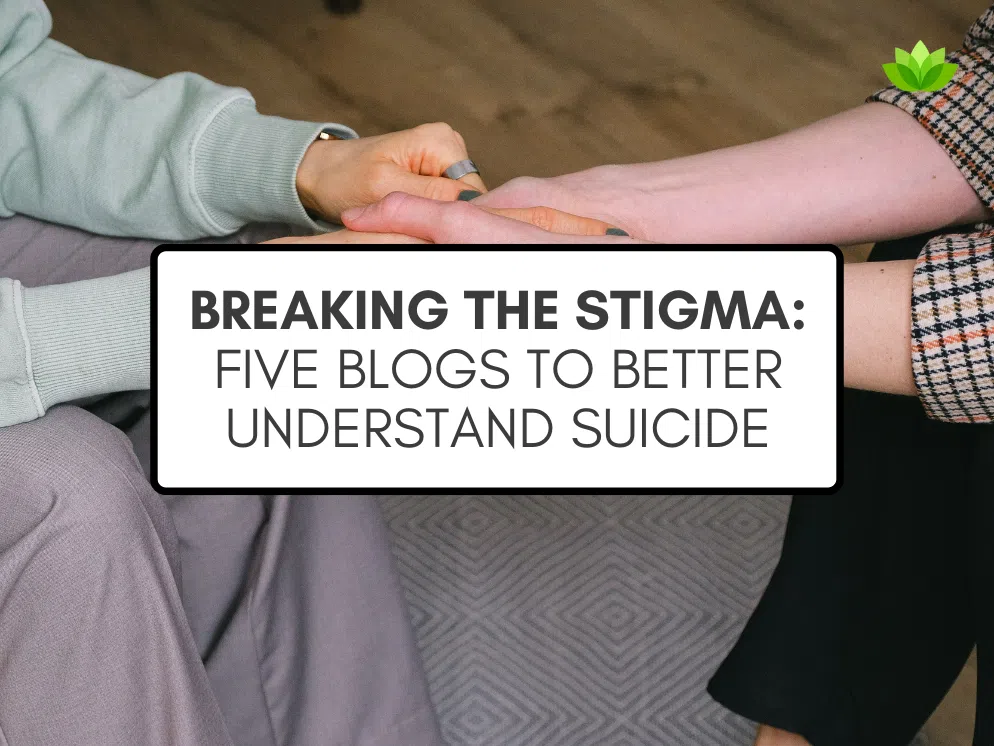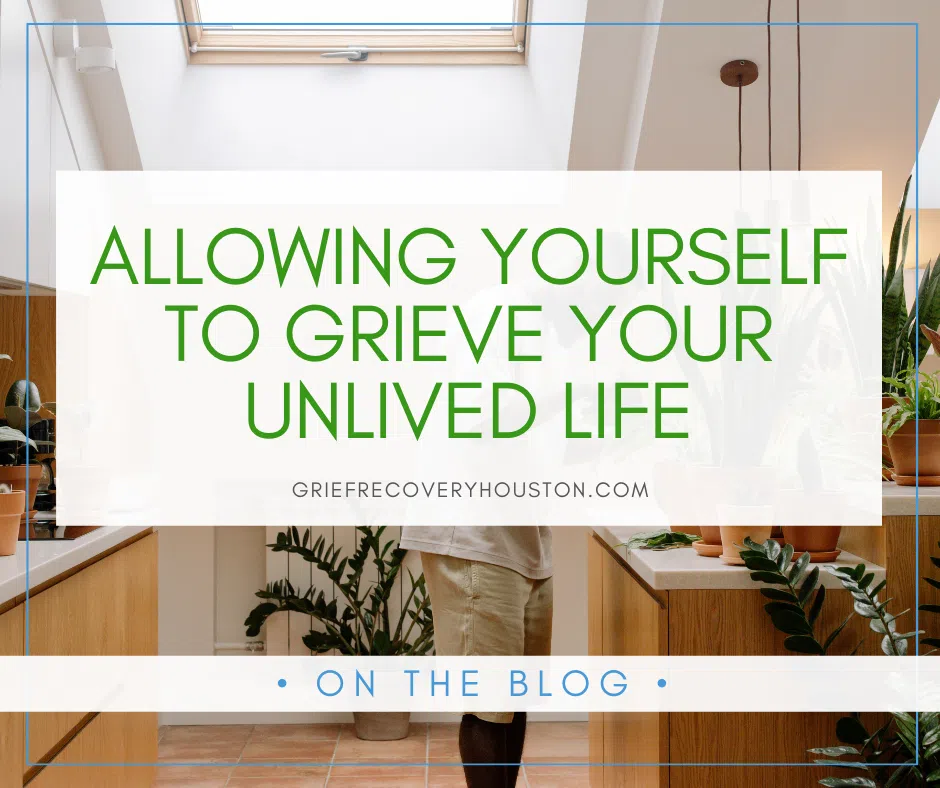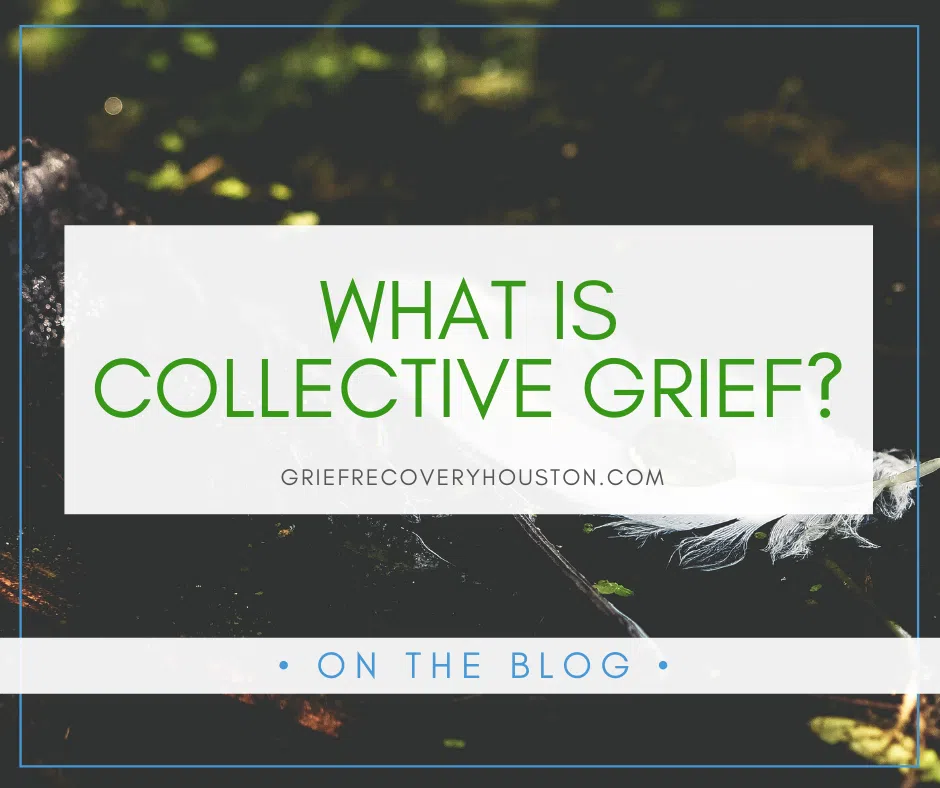- Unpacking Grief and Disability - July 8, 2024
- Breaking the Stigma: 5 Blogs to Better Understand Suicide - May 21, 2024
- 4 Tips for Better Sleep Hygiene - March 4, 2024
 There isn’t just one way to approach the grieving process. Everyone experiences grief differently, so everyone copes with grief differently, and that’s okay. It can make it a little harder to figure out how to care for yourself when you’re grieving, but it also means that there are a lot of options out there for how to cope with and ease your grief. Some things that may help with the grieving process include grief counseling, journaling, a support group, reading books about grief and loss, gentle movement or exercise, self-care, and lots of rest.
There isn’t just one way to approach the grieving process. Everyone experiences grief differently, so everyone copes with grief differently, and that’s okay. It can make it a little harder to figure out how to care for yourself when you’re grieving, but it also means that there are a lot of options out there for how to cope with and ease your grief. Some things that may help with the grieving process include grief counseling, journaling, a support group, reading books about grief and loss, gentle movement or exercise, self-care, and lots of rest.
Exercise is often thought of as a chore or a punishment, but moving your body can be a great way to take care of yourself. For some, reframing exercise as movement can be helpful to distinguish between the urge to change how your body looks and the urge to move your body to feel good. It’s a shame that so many people have negative experiences with exercise, because developing a regular movement practice can go a long way toward supporting your mental health in good times and in tough times, like when you’re grieving.
The things that make you feel better might change from day to day, or even hour to hour when you’re experiencing an emotion as intense as grief. It can be helpful to come up with a few different ideas for coping skills so when you’re in the middle of a particularly distressing moment, you have ideas for how to soothe yourself. Movement can be one of the coping skills you turn to when you’re feeling distressed.
You can even make a grief toolkit, with different objects and resources for coping that you can  pull out when grief rears its head. Some things you could put in the toolkit are cards with different coping skills listed, a list of ways to move your body or links to movement videos, a soft object, photos of loved ones or memories that are important to you, a journal, anti-anxiety medication if you’ve been prescribed any, books on grief and loss, grounding objects, or anything that brings you comfort.
pull out when grief rears its head. Some things you could put in the toolkit are cards with different coping skills listed, a list of ways to move your body or links to movement videos, a soft object, photos of loved ones or memories that are important to you, a journal, anti-anxiety medication if you’ve been prescribed any, books on grief and loss, grounding objects, or anything that brings you comfort.
Okay, but how does movement help with grief?
Movement is distracting
When you’re in the middle of an intense emotional experience like grief, you might wish for anything that can give you a break from the distress. It can be helpful to find things that can be distracting to you, so you can escape the painful feelings you’re experiencing for a few moments. Movement can be a great distraction. Movement doesn’t need to be intense to have a helpful effect on your mental health. Just taking the time to consciously move your body, whether that be walking the dog, doing a yoga video, or cleaning the house, can give you a break from the feelings of sadness and pain that grief brings.
It feels good
Grief is painful. One way to help ease some of that pain is to move your body. Movement and exercise cause a physical reaction in our bodies, which can actually make us feel better mentally and physically. Movement can help calm down your nervous system, which can be especially reactive in the wake of loss. Moving your body also causes the release of neurotransmitters in the brain, like serotonin and dopamine, which allow us to feel pleasure. These neurotransmitters, called endorphins, work on the opioid receptors in our brains, which can lower feelings of pain without having to take a pain reliever.
 It can help you sleep
It can help you sleep
Sleep problems can be an issue when you’re grieving. Some people have trouble falling asleep or staying asleep when they’re dealing with grief. Moving your body is tiring. Taking the time to move regularly can help tire you out more thoroughly so it’s easier to fall asleep at bedtime. Sleep is crucial for so many brain functions, and when you don’t get enough sleep it can start to impact everything from your mood to your social life. Self-care is essential when you’re grieving, and making sure your sleep routine works for you and you’re getting enough sleep is an important part of self-care.
It gives you an outlet for anger
One of the stages of grief (first described by Elisabeth Kübler-Ross) is anger. This is an important stage, but anger can be a difficult emotion to deal with. We aren’t often taught ways to manage anger that are healthy, so anger can sometimes lead to more distress. One way to cope with anger that is healthy is to start moving. Movement can give you an outlet or release for that pent up anger you’re feeling. If you feel angry enough to hit something, try boxing or kickboxing. If you feel jittery and on edge, try going for a walk or run. Anger is a powerful emotion to feel, and sometimes putting yourself in motion can help dispel some of the pent up energy that comes with anger.

Movement helps you return to the present
Grief takes us out of the present moment. We’re either remembering something from the past, or wishing the future looked different, and in doing so we miss what is happening right in front of us. It can even be hard to check in with yourself and notice how you’re really feeling when you’re so disconnected from what’s going on around you. Movement is a great way to  help ground yourself in the present moment. When you’re moving your body, you have something to focus on other than your painful thoughts and feelings. Mindfulness can be a helpful way to manage stress and anxiety as well as grief. Mindfulness doesn’t always have to be sitting still and meditating – as long as you are being mindful of the present moment, you’re practicing mindfulness.
help ground yourself in the present moment. When you’re moving your body, you have something to focus on other than your painful thoughts and feelings. Mindfulness can be a helpful way to manage stress and anxiety as well as grief. Mindfulness doesn’t always have to be sitting still and meditating – as long as you are being mindful of the present moment, you’re practicing mindfulness.






No comments yet.